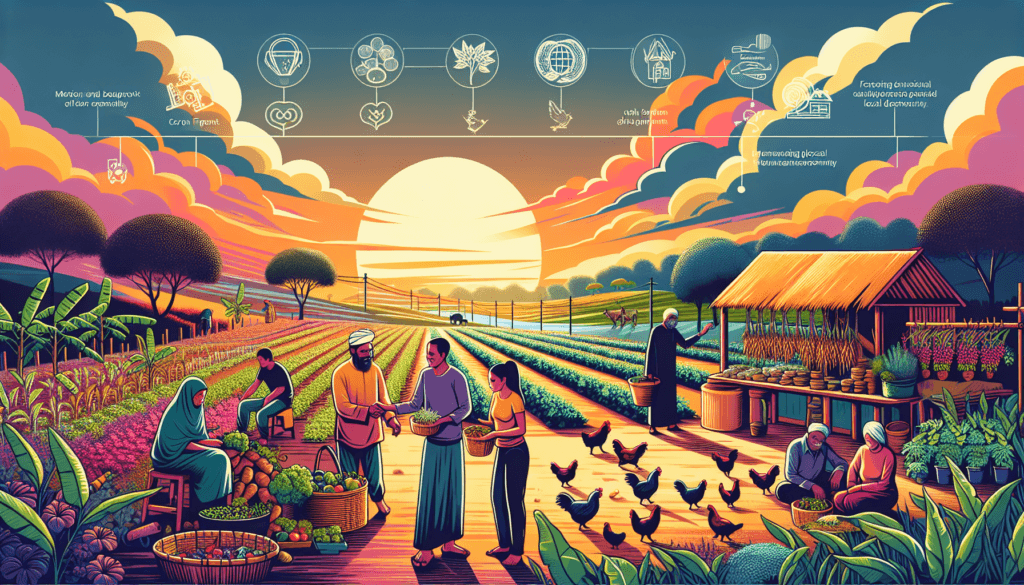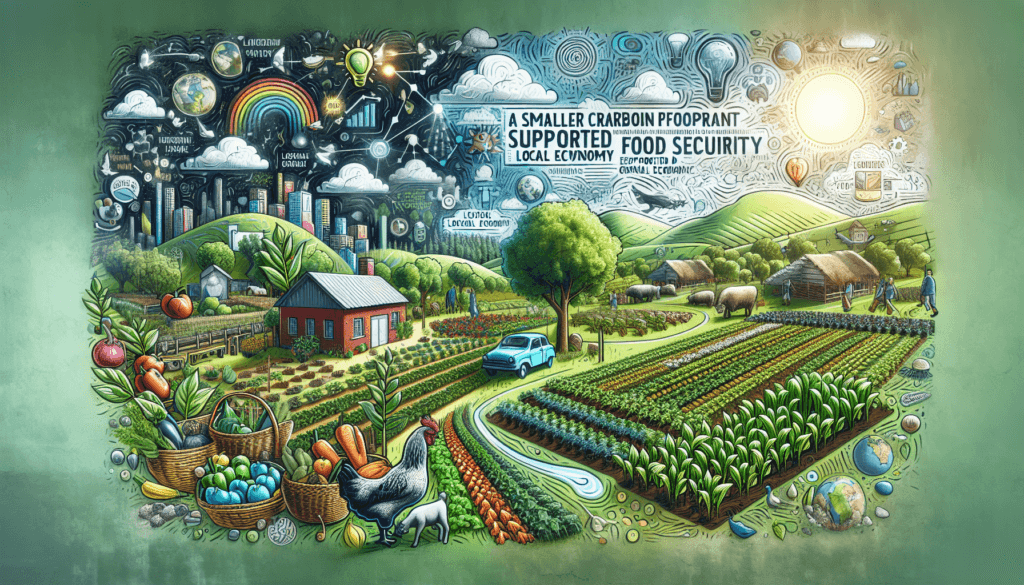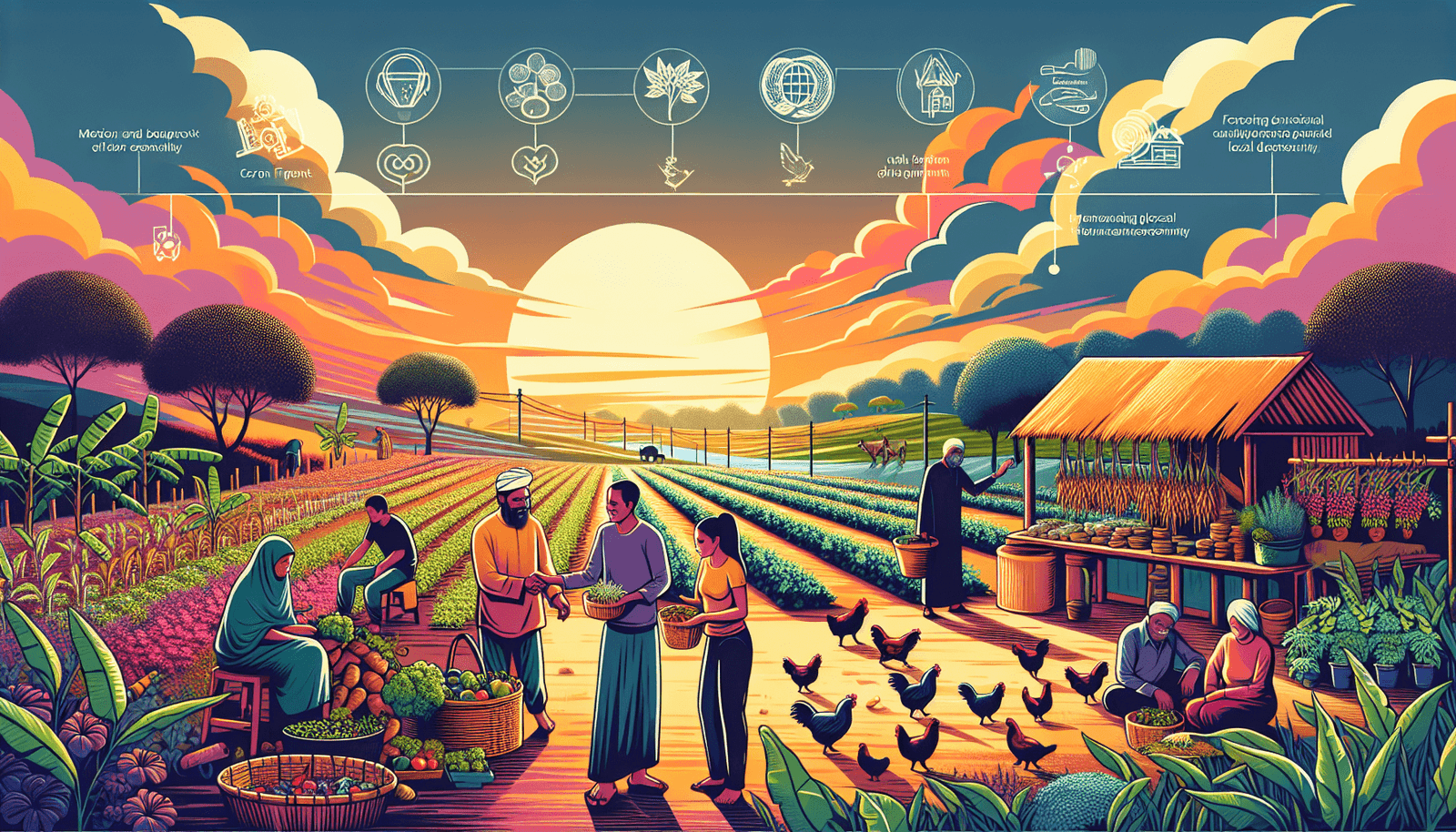Imagine a world where the food you eat is not only fresh, but also grown right in your own community. Local farming has gained momentum in recent years, bringing with it a multitude of benefits. From supporting the local economy to reducing carbon emissions, farming on a local level has the power to transform the way we think about food production. In this article, we will explore the various advantages of embracing local farming and why it is a sustainable choice for both individuals and communities alike. So, let’s embark on this journey to discover the fruitful benefits of farming on a local level!
Benefits of Farming on a Local Level
Reduced Carbon Footprint and Environmental Impact
When you choose to support local farms, you are making a positive impact on the environment. By reducing the distances food travels from farm to consumer, you are reducing carbon emissions associated with transportation. Locally grown produce doesn’t require long trips on trucks or planes, which means fewer greenhouse gas emissions. Additionally, local farms often practice sustainable farming methods, such as crop rotation and the use of organic fertilizers, which further minimize their environmental impact.
Supports Local Economy
By buying from local farms, you are directly supporting the local economy. Local farmers are small business owners, and when you purchase their products, you are enabling them to reinvest in their farms, hire local workers, and contribute to the overall economic growth of your community. The money spent on local farms circulates within the community, benefitting other local businesses and helping to create a more robust and resilient local economy.

Enhanced Food Security and Quality
One of the significant advantages of farming on a local level is increased food security. Relying on global food systems leaves communities vulnerable to disruptions, such as extreme weather events or political instability. When you support local farms, you are decreasing your dependence on external sources for food and increasing the availability of fresh produce within your community. Furthermore, local farms have greater control over the quality of their products, ensuring that you are getting the freshest and most nutritious food available.
Preserves Local Biodiversity
Local farms play a crucial role in preserving local biodiversity. By supporting small-scale farms, you are promoting the cultivation of a diverse range of crops and livestock, which helps maintain genetic diversity. This, in turn, contributes to the long-term health and resilience of local ecosystems. Local farmers often grow heirloom and traditional varieties of fruits and vegetables, which may have unique tastes and nutritional benefits not found in mass-produced counterparts.

Promotes Community Engagement and Social Connection
Farming on a local level promotes community engagement and fosters social connections. When you visit local farms, you have the opportunity to interact directly with the farmers who grow your food. This direct connection brings transparency and trust to the food system. Many local farms also organize community events, such as farm tours, workshops, and farmers’ markets, which provide spaces for neighbors to come together, exchange knowledge, and build relationships. Sharing experiences and stories with fellow community members enhances the sense of belonging and strengthens community ties.
Boosts Local Entrepreneurship and Innovation
Supporting local farms encourages entrepreneurship and innovation within the agricultural industry. Small-scale farmers often have the flexibility to experiment with new farming techniques, crop varieties, and sustainable practices. This entrepreneurial spirit drives innovation within the local farming community and can lead to more resilient farming systems and unique agricultural products. By supporting their efforts, you are contributing to a culture of innovation and sustainability within your community.

Ensures Traceability and Transparency
When you buy locally grown food, you can have greater confidence in its origin and production methods. Local farms provide transparency about their farming practices, allowing you to make informed choices about the food you consume. The ability to trace the food’s journey from farm to table ensures accountability and enables you to support farming systems that align with your values, such as organic or regenerative farming. This transparency fosters trust between farmers and consumers, creating a stronger and more sustainable food system.
Reduces Dependence on Global Food Systems
Local farming reduces dependency on global food systems. Instead of relying solely on imports from distant regions, communities can cultivate a diverse range of food locally. This reduces the risk of shortages or price fluctuations caused by global events. By promoting self-sufficiency, local farming enhances the resilience and stability of the food supply chain, ensuring that communities have access to nutritious food in times of crisis.

Offers Fresher and More Nutritious Produce
When you buy locally grown produce, you can enjoy fresher and more nutritious food. Since local farms are closer to the consumer, fruits and vegetables have shorter travel times, preserving their taste, texture, and nutritional value. Local farmers can harvest crops at their peak ripeness, ensuring optimal flavor and nutrient content. By consuming fresh local produce, you are maximizing the health benefits and enjoying the true flavors of the season.
Mitigates Risks of Contamination and Foodborne Illnesses
Another advantage of farming on a local level is the reduced risk of contamination and foodborne illnesses. With shorter supply chains, local farms can implement rigorous food safety protocols and maintain higher standards of hygiene. They can quickly address any potential issues and minimize the chances of contamination. Additionally, by knowing your local farmers and their practices, you can have increased confidence in the safety and quality of the food you consume, improving your overall peace of mind.
In conclusion, farming on a local level offers numerous benefits for individuals, communities, and the environment. By supporting local farms, you can contribute to the reduction of carbon emissions, support the local economy, enhance food security, preserve biodiversity, and foster community engagement. Additionally, local farming promotes entrepreneurship, ensures transparency, reduces dependence on global food systems, and provides access to fresher and more nutritious produce while mitigating risks of contamination and foodborne illnesses. Embracing local farming is not only a smart choice for your personal well-being but also a way to build a more sustainable and resilient future. So, the next time you shop for groceries, remember the incredible benefits of supporting your local farmers!



